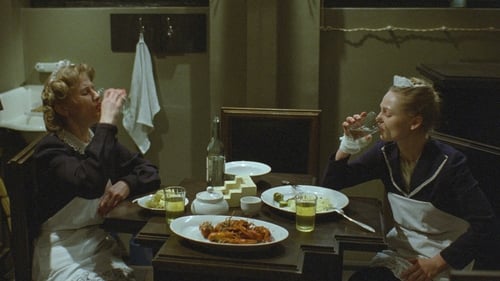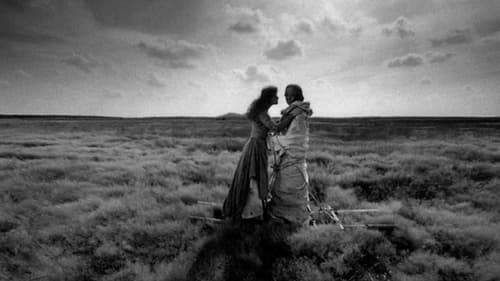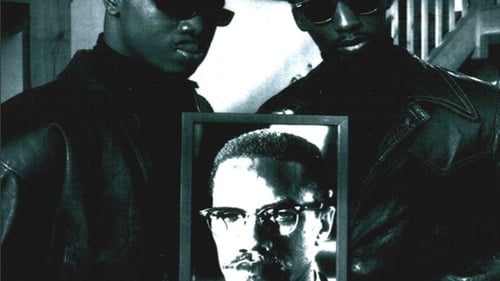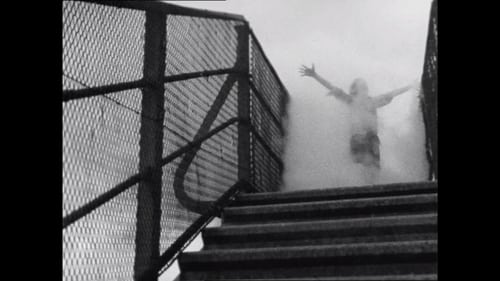
Editor
Within the top secret Institute of Physics Problems, the scientist Nikita Nekrasov is visited by his wife and small children. While away from his family the physicist has managed to fall in love with other women. In open conversations with his spouse – in the bedroom, the dining room, and while out walking – he attempts to convince her of the legitimacy of polygamous relationships, and to test the limits of her unconditional love.

Editor
Natasha runs the canteen at a secret 1950s Soviet research institute. This is the beating heart of the DAU universe, everyone drops in here: the institute's employees, scientists and visiting foreign guests. Natasha's world is a small one, split between the demands of the canteen during the day and alcohol fuelled nights with her younger colleague Olga, during which the two confide their hopes of romance and for a different future. At a party one evening Natasha becomes close to a visiting French scientist Luc Bige and the two sleep together. The following day her life takes a dramatic turn when she is summoned to an interrogation by the KGB's General Vladimir Azhippo who questions the nature of her relationship with the foreign guest.

Editor
An Iranian expat living in London has a shady past and an enigmatic present.

Editor
Based on the real-life experiences of Mende Nazer, the story unfolds as twelve-year-old Malia, daughter of champion wrestler Bah, is abducted from her Sudanese village in the Nubar Mountains by pro-government Arab militia and sold into slavery to a woman in Khartoum, who beats her for touching her daughter. After six years she is sent to London, where her name is changed, but her miserable life of servitude continues. Her passport is taken and she is told that her father will die if she goes to the authorities. Fortunately she meets a sympathetic person who seems to offer her the hope of escape and reunion with Bah ,back in Sudan. For all the film's optimism an end title states that there are around 5,000 'slave' workers currently in Britain.

Editor
A fictional investigative documentary looks back on the "assassination" of George W. Bush and attempts to answer the question of who committed the murder. Perhaps less morbid and disturbing to watch now than during Bush's presidency, the film doesn't address Bush's policies at all, instead focusing on the way a nation assigns blame in a time of crisis.

Editor
Crippled by his writer's block, Paul enters into a new, exciting relationship with risk-taking Billy and super-sexy Juliette. As it becomes increasingly tangled, however, he must choose one of them over the other.

Editor
An adaptation from the controversial John Adams opera about the true life incident that took place in the mid 80s. The liner "Achille Lauro" is on a 12-day cruise in the Mediterranean. While the ship is docked in Alexandria, a maid discovers that four of the passengers are actually members of the Palestine Liberation Organization traveling incognito. Startled by their discovery, the PLO cadre is forced to act. They take the passengers on board hostage and demand the release of 50 Palestinian activists held in Israeli jails. As Egyptian, American, Italian, and Palestinian authorities bicker over the best way to handle the situation (and who would negotiate with the terrorists), the kidnappers find themselves dealing with rebellion among their captives, and an argument between the four PLO members and Leon Klinghoffer, a Jewish-American confined to a wheelchair, eventually escalates into violence.

Editor
A documentary team investigates the day-to-day operation and lives of the residents at a wet house, a hostel for the homeless which allows those living there to continue drinking.

Editor
Goldie, the godfather of drum and bass takes us on a roller coaster ride through his frenetic life. A journey that takes us from Wolver Hampton to Tokyo, Miami to Hong Kong; through his years in council care and his life as a musician and international pop star. Along the way we meet his family, his collaborators and his celebrated friends, David Bowie and Noel Gallagher.

Editor
Enter the medieval world of Christine Carpenter, a visionary girl who is to become an Anchoress (walled-in recluse) so that she can "live in the Virgin's house forever." Based on actual letters that were written about such an Anchoress in 1325, the film follows Christine as she awakens to her own sensuality and explores her own female, earth-based spirituality.

Editor
Jean-Pierre Gorin examines the lives and cultural background of Samoan street gangs in Long Beach, California.

Editor
The tumultuous life of the controversial 1960s black revolutionary (and convicted murderer) Michael X is illustrated by a kaleidoscopic melding of sound and images. The radically discordant free jazz soundtrack provides a surreal counterpoint to the mix of newsreel and staged footage in this exhilarating experiment in documentary storytelling.

Editor
Focuses on the Kwame Nkrumah era in Ghanaian history and paints a portrait of a female African government minister forced into exile after a coup d'état in 1966. Two decades later, she returns to confront the country she left behind.

Supervising Film Editor
The Black Audio Film Collective’s acclaimed essay film, 'Handsworth Songs', examines the 1985 race riots in Handsworth and London. Interweaving archival photographs, newsreel clips, and home movie footage, the film is both an exploration of documentary aesthetics and a broad meditation social and cultural oppression through Britain’s intertwined narratives of racism and economic decline.

Editor
Through the eyes of journalists and photographers working at Barricada, the official publication of the FSLN, the film observes the problems of putting socialism into practice, with reports on the war, the economy, the prison system and the political process leading up to the 1984 elections.

Editor
Shot in 1983–84 and focusing on the work of the Historical Institute, this film witnesses how Nicaraguans are recovering their history, the memory of Sandino’s struggle, to transform their sense of identity.

Editor
A record of the unity and continuity of black struggle in Britain. Underlines the fact that the 'new' black communities consist of workers from different countries in Asia and the Caribbean joined in the same struggles against racism in Britain since World War Two. The film focuses on discrimination in employment against black workers, looking particularly at the 1974 dispute at Imperial Typewriters in Leicester. Here black workers faced opposition not only from the bosses, but from some Trade Unions as well as fellow white workers. And the film demonstrates that the outrage of young black people (many born in Britain) as seen in the dramatic events of Summer 1981, is related to the disappointed hopes of their migrant-worker parents.

Editor
About the black community in Ladbroke Grove and Notting Hill which grew up in the 1950s. “No Irish, no coloured, no dogs" read the rooms-to-let signs in what was already a decaying inner area of London. In the Grove black people had to face the brunt of a crude and brutal racism and a grassroots defence was organised against white racist attacks in 1958, to become part of the more general community resistance. And that strength was reflected in the emergence of several major 'Black Power' organisations. Since the 1960s the vital sense of black community which developed in the Grove has resisted attempts to disperse and weaken the community and in particular the attempt to suppress the annual Carnival - the major Afro-Caribbean event in Britain.

Editor
Looks at Southall, one of the major Asians centres in Britain, and shows how this community organised to resist fascist attacks from 1976 to 1981. Southall's militancy goes back to the community organisations of the 1950's which were created to help black workers combat racism at the workplace and deal with discrimination in the community. As racism increased, the community has fashioned and forged new weapons of struggle.

Editor
Made in Butetown, Cardiff, shows that black communities have been developing since the 1850s. Whereas in the 20th century the 'new' communities are made up of black industrial labour, in the 19th century they began with black colonial seamen. The Tiger Bay community faced official, as well as everyday physical harassment which culminated in the 1919 race riots and a scheme for repatriation. The people of Butetown lived through the Depression in the 1930s and many of them served and died in World War Two. Since the 1950's they have come to share the broader experience of the newer black communities.

Editor
Documentary drama.

Editor
Documentary on advertising. Investigates the way work has disappeared from advertising images, and traces the phenomenon through archive advertising films from 1897 to 1960. Places advertising in the context of historical events and everyday life, archive material being juxtaposed with contemporary images.

Editor
Experimental essay in film history, associating very early archive material (circa 1909) and studio shot footage in an attempt to provide insights into the way in which "film language" developed during the silent era, with emphasis on the process by which spectators came to be increasingly "contained" with the space time of narrative.

Editor
Documentary concerning Newcastle Upon Tyne.

Editor
The first part of Bill Douglas' influential trilogy harks back to his impoverished upbringing in early-'40s Scotland. Cinema was his only escape - he paid for it with the money he made from returning empty jam jars - and this escape is reflected most closely at this time of his life as an eight-year-old living on the breadline with his half-brother and sick grandmother in a poor mining village.





















